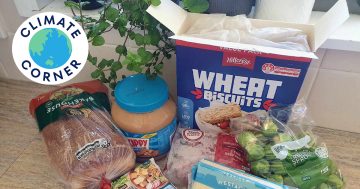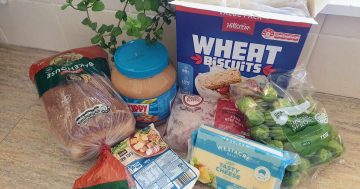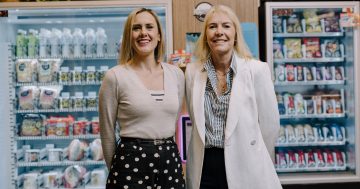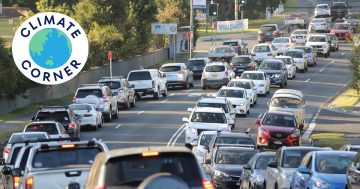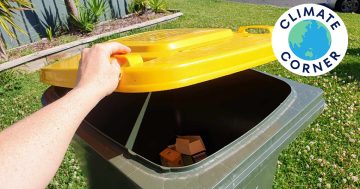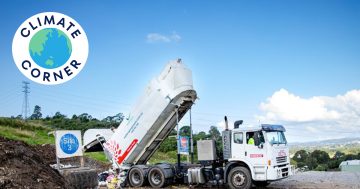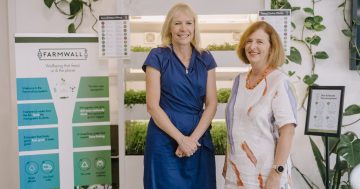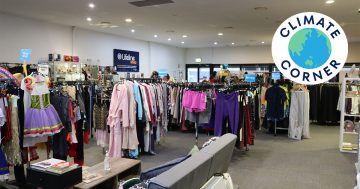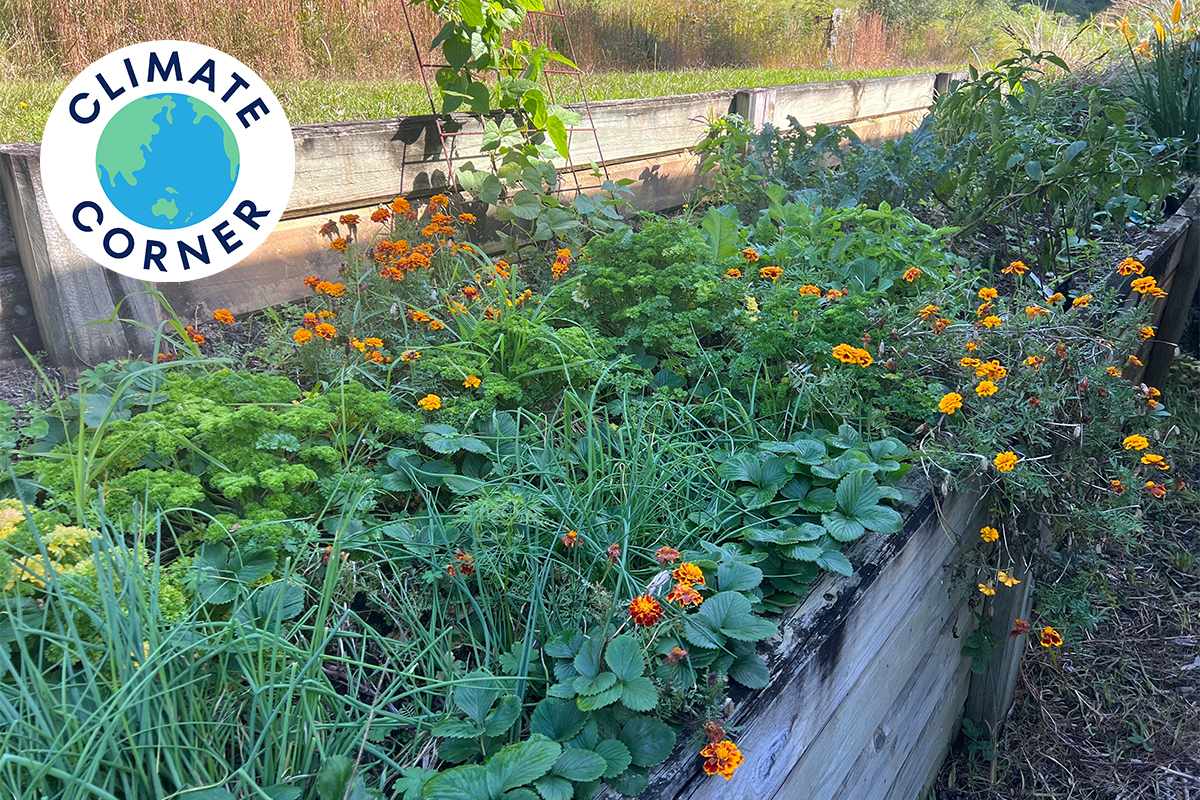
Is it possible to eat a climate-friendly diet without learning to garden? Absolutely, says University of Wollongong Professor Karen Charlton. Photo: Kim Treasure.
Food production is one of the biggest contributors to greenhouse gas emissions in Australia, with agriculture responsible for about 13 per cent of our greenhouse gas emissions.
It’s resource-intensive and essential, especially as our population grows.
Online there are plenty of people promoting different approaches to reducing the environmental impact of what we eat: vegan, plastic-free, low food miles, organic, non-GMO.
If the idea of eating only unpackaged, unprocessed, locally-grown, organic, vegan produce sounds difficult, expensive and unappetising, fear not.
Professor Karen Charlton is a professor of nutrition and dietetics at the University of Wollongong, and said adopting a diet that’s good for the planet, as well as good for you, doesn’t need to be so extreme.
“I don’t think all that is necessary to be honest,” she said.
“But it is a big dilemma, and it’s no wonder people are confused.”
Karen said for a diet to help the planet’s health – and ours – it has to be affordable, accessible and culturally acceptable.
As more of us make planet-conscious switches, food producers and manufacturers are more likely to improve their processes too.
But we have to start by acknowledging that the way we eat and produce food right now is not going to be possible in the future.
“In nutrition in the past our focus has been on the optimal diet for human health, rather than whether those recommendations are actually sustainable if everyone in the world adopts them,” Karen said.
“For example, the recommendation to eat three serves of fish in a week – we’d run out of fish pretty quickly if everyone on the planet did that.”
The three biggest things we can do to reduce the impact of food on the environment are to eat less red meat, be mindful of our shopping habits, and reduce waste.
First thing first – less meat.
“If you tell everyone in Australia they have to become vegan, that’s not culturally acceptable or achievable,” Karen said.
“Go to a butcher that sources sustainably grown meat and uses all cuts to minimise waste. That might cost more, so maybe you eat a little bit less meat each week as well.
“A vegetarian meal once a week, or bulking out meat-based dishes with beans and lentils are good ways to improve your health and help the environment.”
The next step? Being mindful of our shopping choices.
Karen said it’s not necessary to drive an extra half hour to a farmers’ market or bulk-foods store, although it’s great if you can.
Choosing locally grown, minimally-packaged, recyclable products where possible sends the message to companies that consumers care about these things.
If there’s a profit to be made, they’re more likely to change their practices.
“Who would have thought 10 years ago that plastic bags would be phased out, yet they have been,” she said.
“Producers and food manufacturers are going with this trend and understand people want more sustainable options.
“When it comes to fresh produce, the supply chain can be difficult to untangle, but eating seasonally is another way to increase the chances that what you’re eating was produced locally.”
The third step is to be more organised. For some of us, this is the biggest challenge.
“To bulk buy you need your containers in the car, to reduce waste you have to be prepared with a meal plan for the week and avoid impulse buys – it’s a lot of organisation,” Karen said.
“One in five supermarket bags are thrown in the bin, and when you think of all the energy that went into making that food, reducing food waste by being more organised is one of the biggest things you can do for the environment.”
If you’re looking for extra credit when it comes to reducing the environmental impact of what you eat, Karen said there were some solid alternative purchasing options out there, like Box Divvy or co-ops, that are well worth exploring.
At the end of the day, remember the biggest impact of the food choices we all make is influencing policy-makers and supermarkets to prioritise healthy, environmentally-friendly options.
“We have a big challenge ahead of us to do things better,” Karen said.
“Being more responsible in the choices we make is where individuals can make a difference.”








